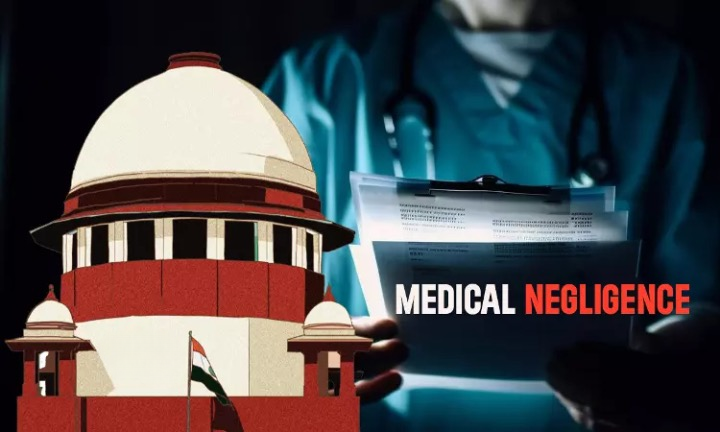'Egg Shell Skull' Rule

- 30 Apr 2024
Why is it in the News?
Underlining that the state and central consumer courts incorrectly applied the ‘eggshell skull’ legal principle, the Supreme Court recently restored the compensation of Rs 5 lakhs awarded by the district consumer forum in a medical negligence case.
What is the ‘Eggshell Skull’ Rule?
- The eggshell skull rule is a common law principle applied in civil litigation.
- Essentially, when the offender would be liable for all injuries that might be intensified due to the peculiar conditions of the injured person that the offender might not have known.
- Simply put, the defendant would be held responsible for injuries caused to a person when he hit him on the head, even if the victim had a particularly delicate skull or an ‘eggshell’ for a skull.
- A person who has an eggshell skull would be more severely impacted by an act, which an otherwise “normal person” would be able to withstand.
- The rule is applied for claiming an enhanced compensation, for damage that is more than what could have been ordinarily anticipated to be caused by the defendant.
Origin of the ‘Eggshell Skull’ Rule:
- The 'eggshell skull' rule, also known as the 'thin skull rule,' is a legal doctrine that holds a defendant liable for all consequences resulting from their negligent or intentional actions, even if the victim's pre-existing vulnerability worsens the outcome.
- The rule's origins can be traced back to an 1891 US case, Vosburg v. Putney, in which a boy kicked another's shin without knowing about his prior injury, leading to complications.
- The Wisconsin Supreme Court held that the defendant was responsible for the subsequent harm, even though he did not intend to cause such severe damage.
- A similar case in England a decade later involved a pregnant woman who experienced severe shock and gave birth to a disabled child after a horse van was negligently driven into a public house where she worked.
- The King's Bench upheld the principle that defendants are liable for the harm caused to victims, regardless of pre-existing vulnerabilities.
- The eggshell skull rule has been applied in various legal cases across different jurisdictions, emphasizing that defendants are accountable for the consequences of their actions, even when victims' unique vulnerabilities contribute to more significant harm.
What was the Jyoti Devi Medical Negligence Case?
- In 2005, Jyoti Devi underwent an appendix removal surgery in Himachal Pradesh, India.
- However, her abdominal pain persisted, leading to a four-year ordeal and multiple hospital visits.
- Eventually, doctors discovered that a 2.5 cm needle had been left in her abdomen during the initial surgery, requiring another operation to remove it.
- Jyoti sought compensation for medical negligence and was initially awarded Rs 5 lakhs by the district consumer forum.
- The hospital appealed, leading to the state consumer forum reducing the compensation to Rs. 1 lakh, and the National Consumer Disputes Redressal Commission (NCDRC) increasing it to Rs. 2 lakhs.
What did the SC Rule?
- The Supreme Court (SC) restored the original Rs 5 lakh compensation, criticizing the lower compensation amounts as "paltry" and "unjust."
- The SC ruled that the 'eggshell skull' rule did not apply in Jyoti's case since there was no evidence of a pre-existing vulnerability or medical condition that contributed to her suffering.
- The court cited two factors for increasing the compensation: Jyoti's prolonged pain over five years and the decade-long legal battle she endured.
